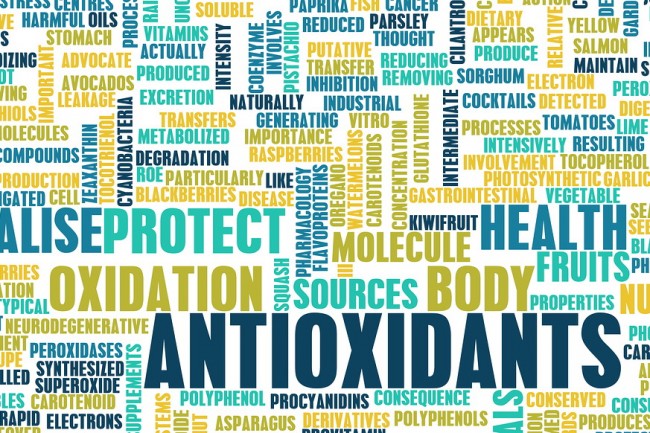- Make It Yourself Lavender Heart-Shaped Bath Bombs!
- 20 Things You Never Knew About “Down There”
- 12 Best Foods For Those Suffering From Arthritis Pain
- 12 Personal Hygiene Mistakes Almost Everyone Makes (Mom Never Told You About #4!)
- 15 Medicinal Plants And Herbs From The Cherokee People
- 12 Mind-Blowing Benefits Of Drinking Coconut Water During Pregnancy
- 12 Outstanding Winter Foods That Won’t Fatten You Up Like A Christmas Turkey
Most Common Myths About Antioxidants Busted
Ah yes, antioxidants — the supposed cure for everything. These compounds which are found in our food are widely believed to be a nutritional magic bullet that can defend against everything that ails us. But is this really true, or just a case of health marketing and pop-science gone wild? Let’s explore this topic and separate fact from fiction when it comes to antioxidants.
Myth 1: Free Radicals are the Root of all Evil (and Antioxidants are the Cure)
We need to clarify what we’re talking about before we go any further. Antioxidant is a term used to describe a special class of molecules which have the ability to counteract free radicals, which have become something of a boogeyman in health and nutrition blogs.
It all starts with the process of oxidation, which is a normal and natural metabolic process of cell functioning in your body. A byproduct of the process of oxidation is the creation of free radicals which are molecules that have been stripped of one of their electrons. This is molecularly unstable, so this free radical molecule will try to steal an electron from a nearby molecule in order to become balanced again. The molecule which has now lost an electron will in turn become a free radical, and the cycle repeats, leading to a chain reaction of molecules becoming free radicals and stealing electrons from each other in an attempt to make themselves stable.
Free radicals can serve a constructive purpose. For instance, part of the way that white blood cells attack harmful germs is by “shooting” these free radical electrons into an enemy germ to kill it. But too many free radicals can have the opposite effect on your health. The chain reaction as described above can damage your DNA, increase the aging process, and raise your risk of developing cancer among other problems.
Antioxidants are a special type of molecule which can neutralize a free radical chain reaction. They do this by giving up one of their own electrons and allowing it to pair with the free radical. What makes antioxidants unique is that they can continue to maintain molecular stability after doing this.
So far so good, right? Based on the information here, it would seem that whenever you see antioxidants on a label, you can rest assured you’re getting quality nutrients. But the truth is more complicated, and the other myths surround antioxidants might be doing more harm than good.
Continue to Page 2
Myth 2: Antioxidants are all the same thing
This is totally wrong and probably a source of confusion for many people. There are actually thousands of different compounds, including vitamins you’re already familiar with, which can be classified as an antioxidant. Vitamin C, which strengthens your immune system, is considered an antioxidant. There are also the flavonoids found in berries, vitamin E, and polyphenols. All of these are antioxidants, but all of them are quite different, and benefit your health in different ways in addition to stopping free radical damage. Getting lots of one kind of antioxidant will not compensate for a deficiency of another.
The solution? Eat a balanced diet rich in fresh fruits and vegetables. This will cover a lot of nutritional ground and ensure that you get a wide range of antioxidants in their naturally occurring form, which is a nice segue to the next misconception.
Myth 3: Fortifying Food with Antioxidants Makes Them Healthier
While it is scientifically possible to add antioxidant molecules to foods where they don’t naturally occur, it is not nearly as beneficial as eating foods which are naturally rich in them. Plus, adding antioxidants to a food that is unhealthy is not going to somehow negate those qualities. Adding antioxidants to ice cream or candy will not cancel out all the sugar.
Many food manufacturers and brands will emphasize the antioxidants in their marketing to make their products seem healthier than they really are. Don’t let it fool you.
READ ALSO: Why Are Antioxidants So Important? Infographic
The bottom line? Antioxidants are good for you, but they have become overhyped. Eat healthy and educate yourself about the true nature of antioxidants or any other kind of nutrients that suddenly seems to become a trend.
References:






























